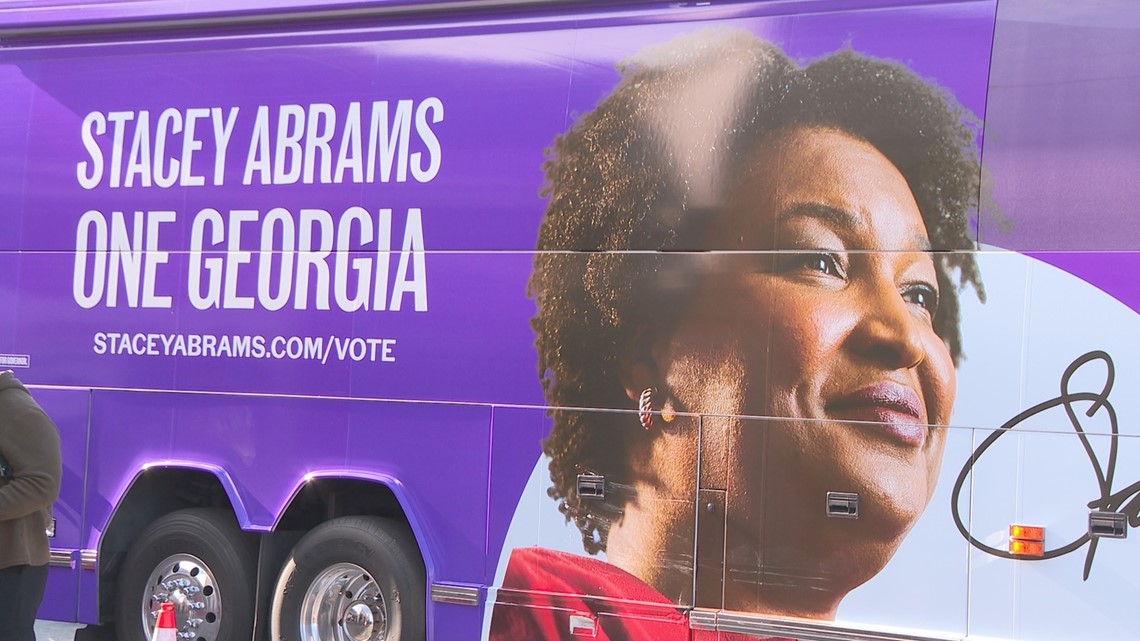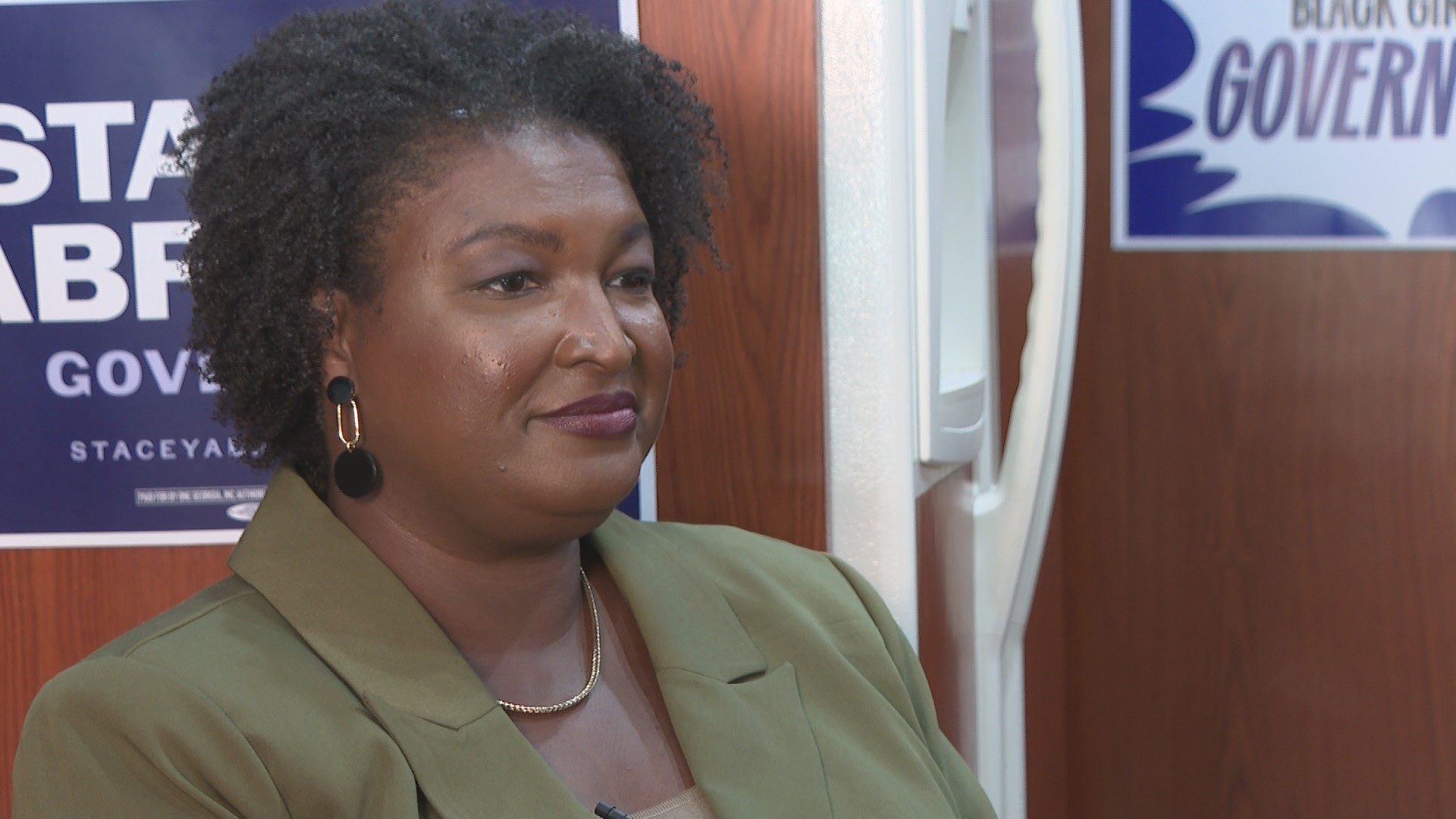DEKALB COUNTY, Ga. — Democrat Stacey Abrams is in a familiar place.
A place where she finds herself one week out from an election she hopes to win. She sometimes thinks back on that 2018 run, but don’t ask her to compare the two.
“This is just very different,” Abrams told 11Alive’s Hope Ford. “We’ve gone through a health pandemic, a racial epidemic of violence, we’re feeling inflationary pain. But what’s also true is that there’s hope and opportunity. This is a different time. It’s different leadership.”
Abrams met with Hope Ford for a one-on-one interview on her tour bus as she made campaign stops Tuesday. Her first stop of the day: the now-closed Atlanta Medical Center. She watched the sign come down from the hospital.
“As they were prying the letters off of the sign, I was reading the list of hospitals that are overcrowded that cannot accept ambulances,” Abrams said. “Right now, your wait times are doubling and tripling; those are lives lost. This is no longer a rural issue. This is a metro Atlanta issue. This is a city of Atlanta issue. This is a statewide crisis.”
Abrams has long blamed the closure of hospitals in Atlanta and rural Georgia on Gov. Brian Kemp and the refusal of Medicaid expansion. WellStar closed the nearly 120-year-old hospital, citing profit losses. While WellStar said Medicaid expansion alone wouldn’t have saved the hospital, Abrams remains steadfast that offering the financing to hospitals can save them from sudden closures. She cited the other 38 states and DC that currently accept Medicaid expansion.
“Math doesn't work differently in Georgia than it does in other states," she said. "The difference is that our governor is refusing the money. And that is why you're losing hospitals. We are losing lives and we are losing opportunities.”
Opportunities that Abrams hopes to take advantage of should Georgians usher her into the governor’s mansion.
Current polls show Abrams trailing Kemp. But she’s not too concerned. It’s one of those times she looks back on her previous run.
“I will point out that in 2018, I was behind three points,” Abrams said of her near defeat of Kemp. “Polls are a snapshot.”
Abrams also took a chance to shoot down Republicans' claims that strong early voting numbers are a sign that voter suppression is nothing more than a myth.
“Voter suppression is about barriers to access,” said Abrams. “If you have difficulty registering, staying on the rolls, or casting your ballot and having it counted. There was voter suppression in 2018. But we also had record turnout in 2018. It is also true that we have seen disabled communities and seniors have reduced access to absentee ballots. Georgia needs laws that make it easier for people to vote, not easier for certain people to win.”


Certain that she can win, Abrams is already looking forward to working to overturn certain bills, including HB 481, commonly known in Georgia as the heartbeat law. During a recent debate, Abrams and Kemp battled back and forth on abortion, taking up a good chunk of the debate runtime. Abrams said if elected, she would have no problem working to get rid of the abortion law, even if she comes up against Georgia lawmakers who are closely aligned with Kemp’s stance.
“That bill passed by one vote in the House and three votes in the Senate. And almost every one of those people are gone," she said. "I am very effective at working across the aisle because that was my job for 11 years. There was nothing I could accomplish in the legislature without being able to work with others. And I was one of the most successful minority leaders in Georgia history.”
Georgia history is what she’s aiming for next, as a win would make her the state’s first female African American governor. While she is battling Kemp’s four-year record and his successes, Abrams remains proud of what’s she accomplished even when not in office.
“I managed to do was pay off the medical debts of 68,000 Georgians. I managed to install 181 Wi-Fi devices in rural Georgia and pay the bill for three and a half years; I led organizations that helped get vaccines to rural communities, I led organizations that delivered thousands of pounds of food to food banks that were running out," she said. "And that's what I did when I didn't have the job of governor - and I look forward to showing four years from now a stronger record as the next governor of Georgia.”

